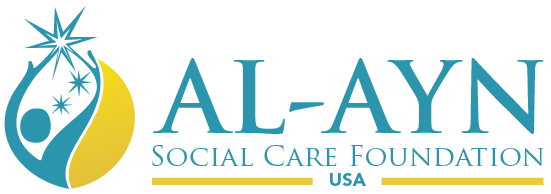 Donate
Donate
 Donate
Donate
Surplus
Deductions
Total amount subject to Khums $0
Khums Due $0
Sahm al Imam to be paid $0
Sahm al Sada to be paid $0
The holy month of Ramadan involves many obligations, the most notable of which is abstaining from food and drink.
For those who did not fast in Ramadan (intentionally, unintentionally, deliberately, or out of necessity), there are additional obligations to fulfil, which involve performing actions in place of the fast.
And these obligations come under two categories: Fidya and Kaffarah.
Anybody who did not fast (minus pre-pubescent children) must pay either a Fidya or Kafarrah, depending on the circumstances and context behind their non-fast.
In this blog, we will expand on the concepts of Fidya and Kaffarah to enable you, the reader, to identify and fulfil these obligations, should they apply to you.
Fidya, derived from the Arabic root ‘Fada’ meaning ‘to redeem’ or ‘to ransom,’ is a compensation paid by those who cannot fast during Ramadan due to valid reasons.
Examples of people who qualify for Fidya include:
Each one of these categories has to pay a Fidya for each day of fasting they missed and make up each fast before the next Ramadan.
The only exceptions are people whose circumstances permanently stop them from fasting. For example, people with chronic illnesses. These people still need to pay Fidya but do not need to make up the fast.
According to Al-Sayyid Al-Sistani, each Fidya constitutes giving a poor person 750 grams of rice, wheat, barley, bread, or other staple food. Thanks to charities such as Al-Ayn, you don’t need to prepare 750 grams of food to distribute yourself. You can simply donate the value of the food online. As of 2024, one Fidya is $1.25, and rest assured, your Fidya will go to those who meet the criteria.
“Why do I have to pay compensation for fasts I missed due to factors outside of my control?” is a natural question that may spring to your mind.
Upon reflection, there are three reasons for the Fidya.
On the first level, Islamic law dictates that every act has a replacement act if the original act cannot be carried out.
For example, if one cannot find water to perform ablution, they must use soil.
In the same way, the act of being unable to fast during Ramadan has a replacement. Although some liable for Fidya still need to make up the fast outside Ramadan, an action still needs to be performed in place of fasting during the month, which is the Fidya.
On the second level, it’s a way to earn the same rewards in Ramadan as the fasting person. Allah’s (swt) justice dictates that nobody should miss out on the holy month’s blessings because they cannot fast.
Lastly, the Fidya system is in place to support the needy worldwide. In some cases, a $1.25 Fidya could feed a family for one night.
Kaffarah, meaning ‘expiation’ or ‘atonement,’ is a prescribed way to compensate for the deliberate invalidation of a fast during Ramadan
Deliberate invalidation of a fast occurs when someone breaks a fast without a good reason. That is, they were under no due pressure, illness, or circumstance that necessitated breaking the fast.
There are two types of Kaffarahs
It’s easier to understand why Kaffarah is necessary–because it’s the penalty to be paid for deliberately breaking a fast.
By paying the Kaffarah, you help a needy person while still benefitting from the holy month’s blessings.
Kaffarah should be paid as soon as possible, ideally within Ramadan, to benefit its recipients.
Al-Ayn provides a streamlined and secure platform for paying Fidya and Kaffarah, allowing donors to fulfill their obligations easily.
Contributions can be made through our online portal or bank transfer with the assurance that 100% of the funds go directly to those in need. Donors can specify their contributions as Fidya or Kaffarah, and Al-Ayn ensures the compliance and proper allocation of these funds in line with Islamic principles and under the instructions of Al-Sayyed Ali Al-Sistani.
I want to pay my Fidya/Kaffarah.